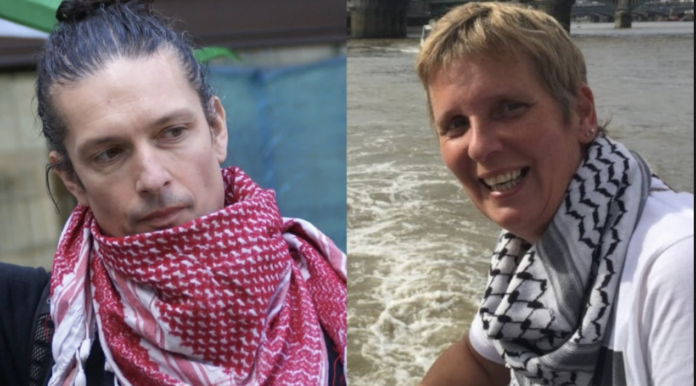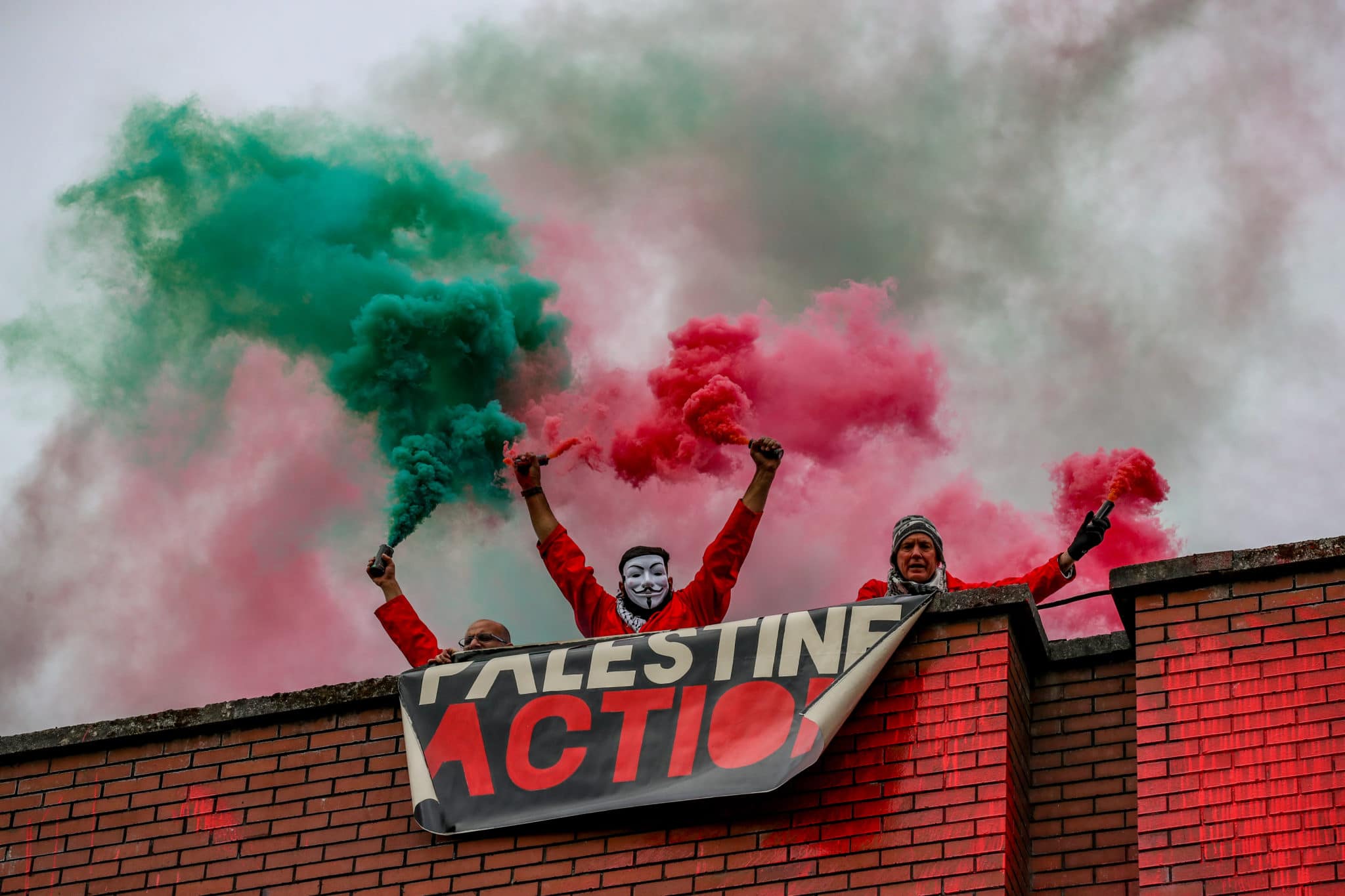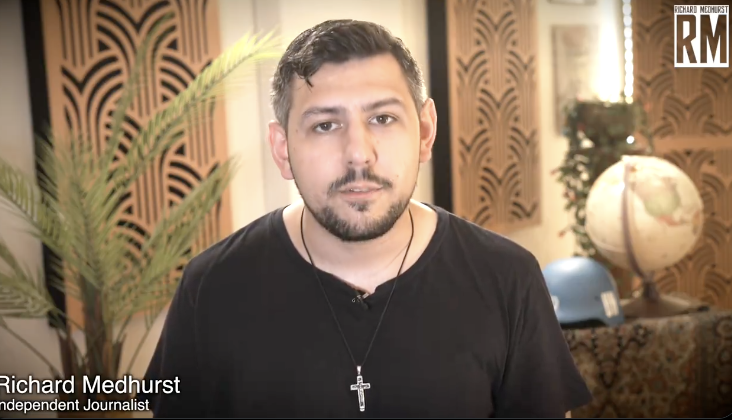Our media rush to issue sensational headlines and frequently make premature judgements, which, when false, are seldom corrected. With regard to the Venezuelan elections of 28 July, we are expected to believe that Nicolas Maduro rigged them. But why do we tend to think that way? Why do the journalists of the New York Times, WaPo, WSJ insist that we should doubt the results of the elections. Let us try some historical perspective and look back at Venezuela’s hundred year tale of corrupt politicians subservient to Washington – until the election of Hugo Chávez in 1998. I too believed the mainstream narrative, but my experience as UN Independent Expert on International Order and my official mission to Venezuela in November/December 2017 taught me otherwise. Back then there was also a very strong media sentiment against Nicolas Maduro, who was routinely labelled a dictator and a gross violator of human rights.
Many of us have come to understand that on important geopolitical issues our media landscape is not free of “fake news” and biased narratives. This is certainly the case with homologated news reports and commentary in the USA, Great Britain, France, Germany, Spain, Italy, and, unfortunately, also in Switzerland, where I reside. Our media seems to be gleichgeschaltet (uniformly aligned) as we know from the German media in the 1930’s, where there was only one narrative. Bearing in mind that Western media largely reflect the pronouncements from Washington and Brussels, it is advisable to make an extra effort to consult information and comments from multiple sources.
As early as the 1990s, we experienced a great deal of manipulation of reality in the reporting on the conflicts in Yugoslavia, with many stories that proved to be false when fact-checked. The black-and-white reporting was irritating and unworthy of any State party to the International Covenant on Civil and Political Rights, article 19 of which aims at guaranteeing access to information, freedom of opinion, and most importantly the freedom to dissent. A relentless manipulation of public opinion followed in the early 2000s with regard to Afghanistan and Iraq. In the 2010s, media bias was persistent in most reporting on Libya, Syria, Russia and Ukraine. Today we are witnessing the same with regard to Belarus, China, Cuba, Nicaragua, Palestine and so forth. All media¹ – not just the Western media – convey impressions, feelings, emotions and biases in addition to information. We are told what and whom to believe, whom to praise and whom to hate. It is about a certain epistemology, a cognitive structure, a belief template — and people do want to believe. As Julius Caesar wrote: – “ quae volumus, ea credimus libenter” — «We believe what we want to believe».²
With regard to Venezuela, Western propaganda has been running a consistent «fake news» campaign since 1998, since Chávez became President. I was among the many victims of this brain-washing propaganda and believed many of the caricatures that were found in the New York Times. In order to prepare for my UN mission in 2017, I tried to read as many reports as possible, including those of the Washington Post, the Wall Street Journal, CNN, Reuters, the FAZ, the NZZ, the US State Department, Amnesty International, Human Rights Watch, the Organization of American States (OAS), the Inter-American Commission on Human Rights, and so on. When I was in Venezuela and had the opportunity to see for myself, ask the pertinent questions from people in the know, , to speak with Venezuelan non-governmental organizations (NGOs) such as Fundalatin, Grupo Sures, Red Nacional de Derechos Humanos, with professors from various universities, with students, with representatives of the churches, with the diplomatic corps, with government authorities, I gradually understood that the media mood in the West was only aiming for regime change and was deliberately distorting the situation in the country. It was not just about false information that one read in the Western press, but about significant omissions. Then as now, many media in the West can be described not only as “lying press” but above all as “gap press”. Anachronisms are ubiquitous. Causes and consequences are reversed. Since 1999, the Venezuelan government has had to cope with this kind of hybrid warfare, an Orwellian “fake news” battalion and a “hate speech” machine that applies double standards, works teleologically and distorts reality.
Non-governmental organizations in Venezuela
When I visited the country in November/December 2017, I spoke to some 45 NGOs, met them individually and in groups. not only the human rights NGOs, but also those specializing on general societal issues, religion, music, education, health, labour, children’s rights, women’s rights, disability rights, LGBT rights. I made it a point to meet with opposition politicians, journalists and militant NGO’s.
While most NGOs are constructive and committed to the common good, others are political and focused on confrontation. Of course, it is legitimate to criticize the government, to point out corruption and other grievances, to demonstrate for larger freedom – but these are not the only tasks of NGOs. It is not only about “naming and shaming”. Civil society must strive to promote dialogue, to make peaceful proposals, to look for the causes of social problems and to craft constructive solutions. After all, civilization means finding ways to live together in peace and tolerating each other.
As I informed the Human Rights Council in my 2018 report, I was subjected to pre-mission, during.-mission and post-mission mobbing. Indeed, before, during and after my Venezuela mission, some political NGOs started a campaign against me. I was defamed and threatened on Facebook and in tweets because some interpreted my body language and reserve as evidence that I would not play anybody’s game. Some NGO’s evidently feared that I would take my mandate seriously, listen to all sides and look for the causes of the problems. These NGOs expected only one thing from me: a global indictment against Maduro. However, I did not see my task as a priori condemning the government, but first of all I wanted to listen and form my own opinion. I also received death threats. The defamation campaign by these so-called NGOs continued after I returned to Geneva and started again when my report was presented to the Human Rights Council in September 2018. Such methods of discrediting are often used against independent special rapporteurs, including the special rapporteurs on Palestine, on international solidarity and on unilateral coercive measures.
I know of threats against the late Dr. Idriss Jazairi, against Prof. Alena Douhan, Reem Alsalem, Prof. Richard Falk, Prof. Francesca Albanese. In my personal case, I remember that a representative of the NGO Provea discredited me before the OAS and claimed that I had done nothing in Venezuela except take photos in a supermarket. In fact, I did visit several supermarkets incognito — and took photos to prove that in 2017 there was no “humanitarian crisis” that could have been instrumentalized to justify a military “humanitarian” intervention. I documented how the Venezuelan government tried to fill the gaps caused by US sanctions, launched a vast food-distribution program known as CLAP, and endeavoured to offer shelves full of meat, fish and canned goods, even though the unilateral coercive measures by the USA had caused colossal damage to the Venezuelan economy.
Many observers share my opinion that there is a special NGO category that operates as a kind of Fifth column or “Trojan horse” and devotes money and considerable effort to undermine the host state. Some of these organizations are funded by the USA and the EU, and their main task has little to do with human rights, but rather with facilitating regime change. This is precisely why the Venezuelan parliament has recently approved a bill to review the funding of all NGOs, since some of them can be considered “foreign agents” – not unlike those Russian and Chinese foreign organizations that fall under the American Foreign Agent Registration Act of 1938.³ Yet, as we all know, quod licet Iovi, non licet bovi – what is permitted to the hegemon is not permitted to the rest of us.⁴
The OAS and the Venezuelan elections of July 2024
The OAS has recently reprimanded the Venezuelan government and continues to refuse to recognize Maduro’s re-election. We may ask what are the OAS’s goals? As we know, the OAS is an organization created by the United States in 1948 with its headquarters in Washington D.C. Since the beginning, the OAS has pursued US interests, rather than those of the Latin American and Caribbean peoples. Since 2015, the Uruguayan Luis Almagro has been Secretary General. He largely supports US policy, spreads US propaganda⁵ and thus undermines Latin American governments such as those in Bolivia, Peru and Venezuela. He recently appealed to the International Criminal Court and asked that Nicolas Maduro be arrested.⁶ It is obvious that the OAS does not aim to guarantee stability and peaceful coexistence between states in the continent, but rather to help with regime change in the countries mentioned.
Is there a way to bring the OAS back to its original vocation? In this context it is pertinent to quote from the Charter of the OAS, which in this author’s views have been and are being systematically undermined.
“Art. 1
The
American
States
establish
by
this
Charter
the
international
organization
that
they
have
developed
to
achieve
an
order
of
peace
and
justice,
to
promote
their
solidarity,
to
strengthen
their
collaboration,
and
to
defend
their
sovereignty,
their
territorial
integrity, and
their
independence.
Within
the
United
Nations,
the
Organization
of
American
States
is
a
regional
agency. The
Organization
of
American
States
has
no
powers
other
than
those
expressly
conferred
upon
it
by
this
Charter,
none
of
whose
provisions
authorizes
it
to
intervene
in
matters
that
are
within
the
internal
jurisdiction
of
the
Member States.
Art. 19
No
State
or
group
of
States
has
the
right
to
intervene,
directly
or
indirectly,
for
any
reason
whatever,
in
the
internal
or
external
affairs
of
any
other
State.
The
foregoing
principle
prohibits
not
only
armed
force
but
also
any
other
form
of
interference
or
attempted
threat
against
the
personality
of
the
State
or
against
its
political,
economic,
and
cultural
elements.
Article
20
No
State
may
use
or
encourage
the
use
of
coercive
measures
of
an
economic
or
political
character
in
order
to
force
the
sovereign
will
of
another
State
and
obtain
from
it
advantages
of
any
kind.”
In this author’s opinion, unless fundamental changes occur in the way the OAS is administered, in the arbitrary fashion it operates, in the ideological composition of its secretariat — it would be best to abolish it. Sooner rather than later. In a very real sense, the OAS belongs to the 20th century era of imperialism. It is a misfit in the 21st century. By contrast, there is another regional organization that is more representative of the Latin American and Caribbean peoples – the CELAC – Comunidad de Estados de Latino America y del Caribe,⁷ which, according to its statute, represents the interests of the peoples of America, for example by declaring the region a “Zone of Peace” in 2014.⁸
US motives in trying to overthrow the Venezuelan government
Since the election of Hugo Chávez in 1998, the country has been subjected to neo-colonial hostility.. The current attacks by the OAS, the hybrid war from abroad and the harsh unilateral coercive sanctions – aren’t these further examples of what happens to a country that refuses to submit to US hegemony?
Venezuela is an enormously rich country, has the largest oil reserves in the world, as well as gold and a number of important minerals. If Maduro’s government is overthrown, economic opportunities will open up for American corporations, as we have heard from Donald Trump, Mike Pompeo, Joe Biden and Antony Blinken. All the social reforms in Venezuela will be quickly abolished and the history of Chávez and Maduro will be erased. A coup d’état as in Peru would result in retrogression in social rights and lead to the re-colonization of Venezuela by the USA. What is at stake is US control of Latin America, the Monroe Doctrine and the victory of capitalism over socialism, the realization of the fantasies of Francis Fukuyama and his supercilious book The End of History (Free Press, 1992).
The USA does not want to allow a socialist system to succeed in Latin America under any circumstances. It would be a “bad example” for other states in the region that would also like to guarantee their citizens economic and social rights. Salvador Allende tried it in Chile in 1970 and was overthrown in 1973. Manuel Zelaya tried it in Honduras and was ousted in a coup in 2009, Evo Morales tried it in Bolivia and was chased out of office in 2019. Pedro Castillo tried it in Peru.. He has been in prison since December 2022. This massive US violation of the sovereignty of other countries is not happening only in Latin America. The US also appears to have had a hand in the ouster of Imran Khan in Pakistan in April 2022. The coup against Sheik Hasina in Bangladesh in August 2024 also appears to have been co-organized by the US.⁹ The US has a lot of experience in the manipulation of foreign elections, destabilization and coups, as we know from several books by Professor Stephen Kinzer.10
Maduro and the alternatives
In the last two presidential elections, the opposition tried to stir up violent street protests and failed. Maduro was able to hold on despite strong pressure from abroad and domestic attempts to overthrow him. Why is this? My personal impression is that a majority of Venezuelans supported and still approve of the reforms of Chávez and Maduro. The economic crisis in the country is the direct result of the draconian US sanctions, which are causing unemployment, despair, illness and death. These illegal unilateral coercive measures (UCMs) also forced millions of people to leave the country. These are not political refugees who reject the reforms of Chávez/Maduro, but economic migrants who are directly or indirectly affected by the UCMs made in USA. There is undoubtedly a shortage of medicines and medical equipment, as well as some foodstuffs, as three UN special rapporteurs who visited the country have documented in detail. The most recent reports by Prof. Alena Douhan11 and Prof. Michael Fakhri.12 come to similar conclusions to those I formulated in my earlier report of 2018.13
The frequent accusations of corruption and mismanagement made by the West and the opposition in Venezuela are either falso or half-truths. There is also considerable mismanagement and corruption in the USA, UK, EU states, Russia, India, China, etc.. But the main reason for the misery in Venezuela is certainly not “mismanagement”. I have met extremely competent ministers in Venezuela. It is astonishing that the government still enjoys a relatively high degree of popularity among the people despite the artificial crisis triggered by the UCMs. Economics professor Pasqualina Curcio from the University of Caracas has written several books on the causes of the economic misery, which prove that the crisis is being deliberately forced on Venezuelans from abroad.14
I personally discussed her analyses with her in Venezuela and when she came to Geneva to attend a Human Rights Council session. Professor Miguel Tinker Salas from Pomona University in California has also written about the crisis and its causes.15 The studies by the Center for Economic and Political Research in Washington D.C. (CEPR)16 and the analysis of the 2024 elections are pertinent to understand what is really going on.17
Juan Guaido et al.
After the 2018 presidential elections, the West recognized the self-proclaimed president, Juan Guaidó, as the legitimate president. Guaidó had no legal leg to stand on, and his reference to article 233 of the Venezuelan constitution to create the illusion of plausibility had no merit and would be rejected even by a first year law student. Article 233 simply does not apply. I am confident that history will confirm my view that the 2018 elections were not rigged and that Guaidó was nothing more than an opportunist who enjoyed the long support of Donald Trump and Mike Pompeo and, since 2021, of Joe Biden and Anthony Blinken. He was the Venezuelan Zelensky, Washington’s useful puppet. He too was celebrated by the US Congress in Washington and has certainly profited enough. Now Guaidó is no longer à la mode and is being replaced by other puppets. The USA has new vassals, namely Edmundo Gonzalez Urrutia and Maria Corina Machado. Once again we are seeing a farce, a charade, an opera buffa. Let’s wait and see how the current leaders of the opposition fare in the end.
It is interesting to identify parallels in other countries. Following the 2018 elections, the US claimed that Maduro had committed electoral fraud. Yet, hundreds of international observers found the 2018 election to have been free and representative, and the competent authority, The national electoral council, Consejo Nacional Electoral (CNE), confirmed the results of the election. When I was in Venezuela in the run-up period to the elections, I visited this institution and spent about two hours with its chief and his staff, who explained to me in detail how it all works, not just the technical aspects, but also how they verify the results. The system is technically well designed so as to rule out manipulation. In addition, the CNE chief and his staff answered all my questions and left a serious, professional and non-political impression. However, this does not guarantee that in 2024 the CNE acted professionally and apolitically. In 2024 approximately a thousand foreign election observers were in Venezuela, who reported that the elections on July 28 were carried out correctly, without coercion, without violence. I know one of those observers, who is a colleague at the Geneva International Peace Research Institute.
Challenge to the election results and review by the Venezuelan Supreme Court
In the light of the refusal of the Venezuelan opposition to accept the election results issued by the competent authority, the CNE, Maduro invoked the procedure known as “amparo” and turned to the Venezuelan Supreme Court as is provided for in the Venezuelan Constitution. In this sense Maduro acted pursuant to the Venezuelan legal order. It is important to remember that serious cyberattacks were registered against the CNE system and numerous government offices, making it difficult to verify the digital evidence. Notwithstanding the technical obstacles, this was done. During a period of three weeks, the Supreme Court examined the complaints against the government, demanded pertinent evidence from the opposition, and analysed the CNE records.18 On August 22, the Supreme Court issued its ruling, confirming that Maduro was indeed re-elected with 52 percent of the popular vote. The opposition and the US media promptly rejected the court’s ruling. But the Supreme Court is the final authority.
This review process corresponds to the demands of the “rule of law” and is also known in other countries. For example, the elections in the USA in November 2000 were disputed in several states. They wanted to have everything verified, but on January 8, 2001, the American Supreme Court stopped the verification and gave the election to George W. Bush. After almost nine weeks, a result was announced as ordered by the US Supreme Court. Personally, I think there were too many “irregularities” and the elections should have been reviewed in several states or the elections should have been repeated in those states. Personally, I think Al Gore was the winner. The elections in November 2020 also went wrong and many Republicans are still convinced that the Democrats “stole” the election. But there again the courts rejected Trump’s legal challenge and confirmed the election of Joe Biden. I don’t know whether the US courts worked seriously. Here too, it took many weeks before a final decision was made.
It is worrisome that a number of Western states are demanding insight into the Venezuelan election results. That constitutes a flagrant infringement on the sovereignty of Venezuela and is contrary to international law norms, the UN Charter and the OAS Charter. Such interference in the internal affairs of a State is contrary to international law and practice. Just imagine if the shoe were on the other foot. What would the international outrage be if India or China did not recognize and verify the results of the elections in the US, UK, France or Germany and would recognize the opposition leader as the legitimate winner of the elections in question!
It is remarkable that the media in the US and in several Latin American countries such as Argentina and Peru always expected that the opposition would defeat Maduro. This was printed and reprinted for weeks before the election. In my experience in November/December 2017, Maduro did enjoy considerable popularity then, but more than six years have passed and the effect of the propagandistic activities of US and EU-funded organizations and NGOs in Venezuela should not be underestimated. In addition, as mentioned above, the US coercive measures – falsely called “sanctions” – have caused misery in Venezuela. Friends who were recently in Venezuela told me that there was a vague mood of surrender among certain parts of the population, that some Venezuelans thought that turning away from “Chavismo” is the condition for the lifting of the brutal economic war. Perhaps some among them voted for Gonzalez Urrutia in the hope that the US sanctions would finally stop. The price: acceptance of a government installed by the USA.
Edmundo Gonzáles and Maria Machado, like Guaidó back in 2019, were built up by the USA as beacons of hope. A vast public relations campaign unfolded with the purpose of persuading the world that regime change could be achieved peacefully through the ballot box. Yes, it is the same game again, a similar “B-movie” from Hollywood. The opposition and the international mainstream media pursue a campaign to delegitimize the 2024 elections. Some countries have refused to recognize Maduro’s re-election. This has led to diplomatic disputes e.g. with Argentina and Peru.
Colour Revolutions
What we are witnessing is reminiscent of various so-called “colour revolutions”, a euphemism for coup d’état. This was the case in Georgia in 2003, in Moldova in 2009, in 2014 with “Euromaidan” in Ukraine, and in early 2022 in Kazakhstan (albeit unsuccessfully) – all with the help of the USA and the EU. The West’s attempt to influence the elections in Belarus in 2020 failed. The sore losers then rejected Lukashenko’s re-election as a “scam” and declared opposition leader Sviatlana Tsikhanouskaya the “legitimate” president.19 It couldn’t be more embarrassing, but the USA and the EU are not easily persuaded to leave other countries to solve their own problems. They continue to pursue an imperialist foreign policy — and have learned nothing from their failures.
The issue of legitimacy
All forms of government rely on legitimacy. In the Holy Roman Empire of the German Nation, the election of an emperor was a major problem until Emperor Charles IV approved the Golden Bull of Prague in 1356.20 Napoleon, who in 1806 abolished the thousand-year-old Holy Roman Empire, had no legitimacy himself. He came to power in 1798 through a coup against the French post-Robespierre Directory and crowned himself emperor in Notre Dame in 1804 in the presence of Pope Pius VII. Napoleon was a megalomaniac, a swashbuckler, an opportunist, an aggressor without any legitimacy. Unfortunately, some historical books and journalists still praise this usurper and have made him a hero, even though he embroiled all of Europe in numerous wars and is responsible for hundreds of thousands of deaths.
Today, Volodymyr Zelensky also has no legitimacy. First, he was elected in 2019 as a candidate for peace. He deceived his voters because he only pursued confrontation and war. His term as President elapsed in May 2024, but no new elections were held. He continues to rule without democratic legitimacy. This is tacitly accepted by the Western media. Zelensky has renounced the election in 2024 provided for by the Ukrainian constitution. He exercises dictatorial powers and will stay as President in the absence of elections. By comparison, Maduro did conduct a peaceful election campaign, and 60 percent of the population went to the polls.
Whom can we trust?
In highly political matters, lies are often told. What and whom can we trust? Should we always believe the pronouncements of our government authorities? Should we take the official reports of our governments at face value? I myself do not know whether the Venezuelan CNE can be trusted. I also do not know whether the decision of the Venezuelan Supreme Court can be trusted 100 percent. We must also have doubts in other areas because we do not know exactly what actually happened. In too many cases, the media has led us by the nose and told us only half-truths. This can also be seen in the reporting on the Gaza and Ukraine wars.
A current example of media manipulation and distortion is the narrative surrounding the blowing up of the Nordstream II pipeline. Why does the media try to make us believe the preposterous US-Ukraine-Poland fantasy that Nordstream II was blown up by six men from Ukraine and Poland? This was not a task for amateurs. The media narrative collapses when put alongside the research by Seymour Hersh and Professor Jeffrey Sachs, who outlined the enormous technical requirements and the necessary expertise for such an undertaking. I am persuaded by the scenario: USA – perhaps with some help by Norway or the complicity of Sweden – carried out this attack.21
At the press conference in Washington after Olaf Scholz’s visit to the USA in February 2022, before Russia’s invasion of Ukraine, Joe Biden said unequivocally that if Russia attacked Ukraine, the pipeline would no longer exist. The USA announced that it would end it.22
Who still believes that John F. Kennedy was shot by Lee Harvey Oswald alone? The official US report on the murder of JFK is an outrage. Who believes that the attack on the World Trade Center Towers on 11 September 2001 was carried out by Al Qaeda alone? The official US report is full of holes and contradictions. Who believes that the US Supreme Court ruled correctly on the 2000 US elections? Who believes in the British justice system in the Julian Assange case?23 Who believes in the US justice system in the matter of the illegal arrest of the Venezuelan diplomat Alex Saab?24 Who believes the narratives about the arrest of Pavel Durov? One can always have doubts about court decisions. But what is not at all in doubt is the fact that our repeated interference in the internal affairs of Belarus, Kazakhstan, Cuba, Libya, Nicaragua, Syria, Venezuela etc. constitute gross violations of the UN Charter and numerous of principles of international law.
In Conclusion
Even after the Venezuelan Supreme Court confirmed Maduro as president, it is certain that the sanctions by the US and EU will not cease. Venezuela will not be allowed to have peace. The USA tried to overthrow Hugo Chávez in a coup in 2002. Chávez should have been killed, like Salvador Allende (I never believed the story of Allende’s “suicide”) in 1973. When the coup against Chávez failed in 2002, the economic war was intensified. When Chávez died of cancer in 2013, the USA increased the pressure on Maduro. But no one asks whether Venezuela could have achieved social peace if the opposition had taken over the presidency in 2014 or 2018. Would peace in Venezuela come today with Gonzalez/Machado? Let us not deceive ourselves. The fact remains that there are millions of Chavistas in Venezuela who will not accept retrogression and the destruction of the socialist model. A coup d’état by Gonzalez/Machado would certainly mean civil war.
On the other hand, there was the appearance of a certain relaxation and rapprochement between Venezuela and the USA earlier in 2024. Personally, I entertained a measure of hope for reconciliation and rationality. Yet, the USA never abandoned its policy aimed at removing Maduro from power. The US, through its global propaganda machine and the media, still continues to try to convince the world that a majority of Venezuelans favours the opposition.
What is here at stake is not whether Maduro won or lost the 2024 election. I am not Venezuelan and only want that the will of the Venezuelan people be respected. What is at stake is the principle of State sovereignty – not just Venezuela’s sovereignty and the Venezuelan people’s right of self-determination, but the sovereignty of other States in Latin America, Africa and Asia. What is crucial is our recognition of the need to apply international law uniformly and not à la carte, in the spirit of US “exceptionalism”. The US and the EU do not have the right to meddle in the elections of other countries, nor the right to decide which elections are legitimate and which are not. In any case, dozens of heads of government around the world have recognized Maduro’s election as legitimate. Their opinions must also be respected: Audiatur et altera pars.
Notes.
1 See my analysis of the media, Chapter 7: The Human Rights Industry, Clarity Press, 2023.
² Gaius Iulius Caesar: De bello civile 2,27,2
³ https://www.justice.gov/nsd-fara
⁴ paraphrased by Terentius
⁵ https://freedomhouse.org/article/luis-almagros-defense-democracy-venezuela
⁶ https://www.msn.com/en-gb/news/world/oas-chief-demands-indictment-and-icc-arrest-warrant-for-maduro/ar-BB1r1cyE
⁷ https://caricom.org/institutions/the-community-of-latin-american-and-caribbean-states-celac/
⁸ https://wpc-in.org/news/celac-declare-zone-peace
⁹ https://www.jeffsachs.org/newspaper-articles/5x2zh8emrax3hs3dltf4hbcf6d2mmw https://www.business-standard.com/external-affairs-defence-security/news/bangladesh-why-is-st-martin-s-island-in-news- and-what-sheikh-hasina-said-124081201401_1.html
10 Overthrow, Times Books, New York 2006; Kinzer: All the Shah’s Men: An American Coup and the Roots of Middle Eastern Terror, John Wiley and Sons, New York 2003
11 https://www.ohchr.org/en/documents/country-reports/ahrc4859add2-visit-bolivarian-republic-venezuela-report-special
12 https://www.ohchr.org/en/documents/country-reports/ahrc4859add2-visit-bolivarian-republic-venezuela-report-special
13 https://www.ohchr.org/en/documents/country-reports/ahrc3947add1-report-independent-expert-promotion-democratic-and-equitable
14 https://archive.org/details/THEVISIBLEHANDOFTHEMARKET.ECONOMICWARFAREINVENEZUELA.PASQUALINACURCIOC
15https://www.migueltinkersalas.com/
16 Jeffrey Sachs and Marc Weisbrot: “Economic Sanctions as Collective Punishment”. 2019, https://cepr.net/images/stories/reports/venezuela-sanctions-2019-04.pdf
17 https://cepr.net/report/venezuelas-disputed-election-and-the-path-forward/
18 https://www.telesurtv.net/sala-electoral-del-tsj-de-venezuela-certifica-triunfo-de-nicolas-maduro-el-28j/
19 https://tsikhanouskaya.org/en/news/c5161b391648792.html
https://www.chathamhouse.org/publications/the-world-today/2022-06/interview-sviatlana-tsikhanouskaya
20 https://www.unesco.de/kultur-und-natur/weltdokumentenerbe/weltdokumentenerbe-deutschland/goldene-bulle
21 https://seymourhersh.substack.com/p/how-america-took-out-the-nord-stream
https://www.wsws.org/en/articles/2023/02/18/vaoq-f18.html
https://www.nbcnews.com/politics/biden-meet-german-chancellor-russia-ukraine-tesnions-rcna15190
https://www.counterpunch.org/2023/02/15/hersh-the-us-and-the-sabotage-of-the-nordstream-pipelines/
22 https://www.youtube.com/watch?v=pXAVOq5GX00
23 Nils Melzer: The Trial of Juian Assange, Verso Books, New York 2022
24 https://www.oas.org/dil/esp/constitucion_venezuela.pdf







